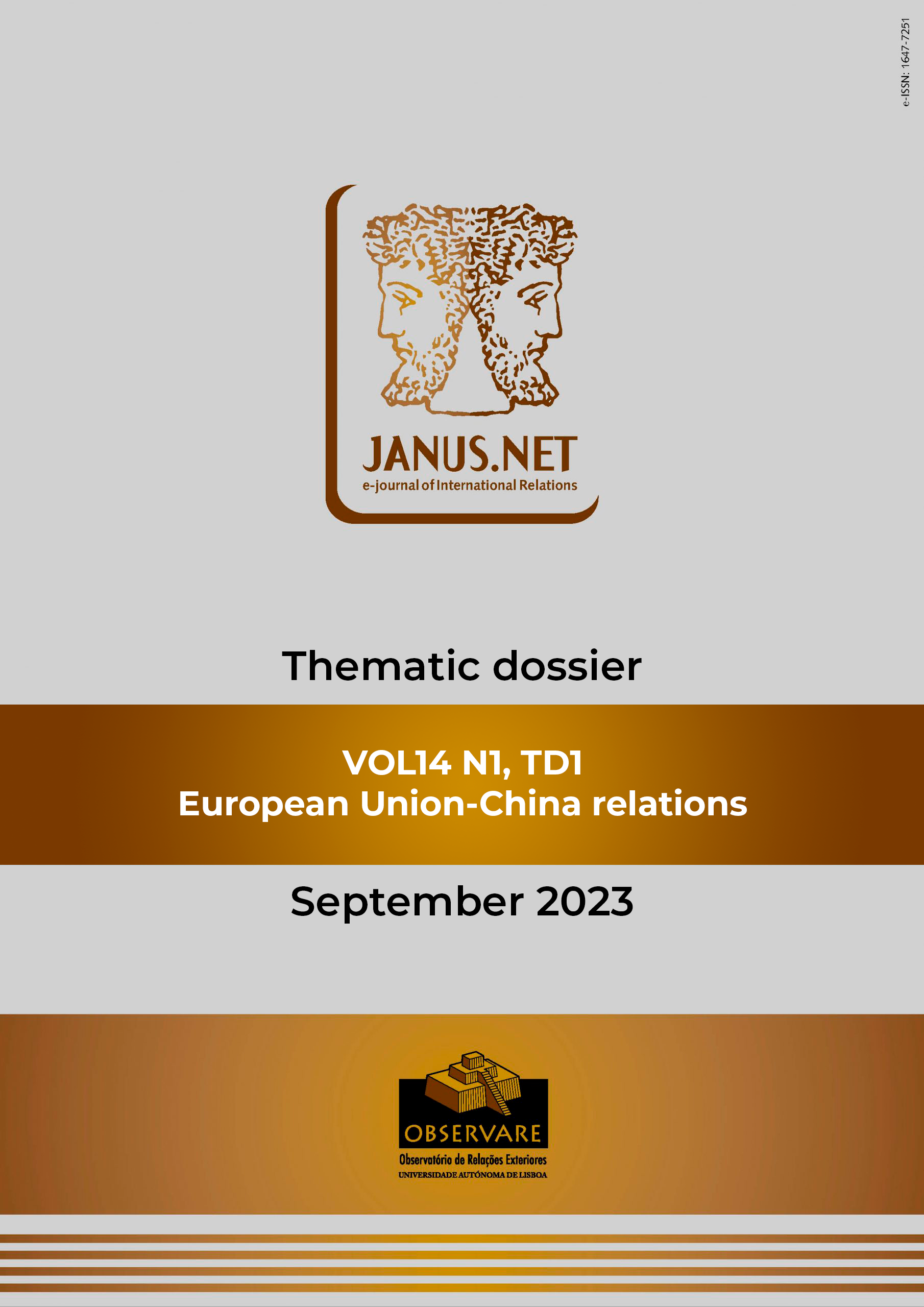This paper takes stock of the idea of cognitive dissonance as a possible attribute of the current EU-China relations state of affairs. It goes far beyond the simplistic approach to the term that became quite frequent in politicians and analysts’ discourses, because delving into the theory pioneered by the psychologist Leon Festinger in the late 50s, which, in brief terms, assumes that in a psychologically unpleasant situation characterised by conflicting beliefs, opinions, feelings, behaviors, or attitudes, there is a tendency to attempt to reduce dissonance and avoid information likely to increase conflict. Under this theoretical framework, the article explores the tensions, contradictions and dilemmas that are shaping EU-China relations in a complex, fast-changing, geopolitical and geostrategic context. Accordingly, it takes advantage of insights provided by the theory of cognitive dissonance to frame a discussion on dependencies and interests, as well as efforts to keep up appearances and manageable balances within conflict, which, arguably, can configure a dissonance-reducing intent. The paper, though, concludes that this intent is bearing on a hedging strategy, rather than on changes in behavior, values and beliefs, or environmental conditions, as advocated by Festinger’s theory.
EU-CHINA RELATIONS: EXPLORING THE POSSIBILITY OF COGNITIVE DISSONANCE
https://doi.org/10.26619/1647-7251.DT0123.2
CARLOS RODRIGUES
Abstract
Keywords
Cognitive Dissonance, Systemic Rivalry, Contradiction, Dilemmas, China, European Union
Artigo publicado em 2023-09-28

